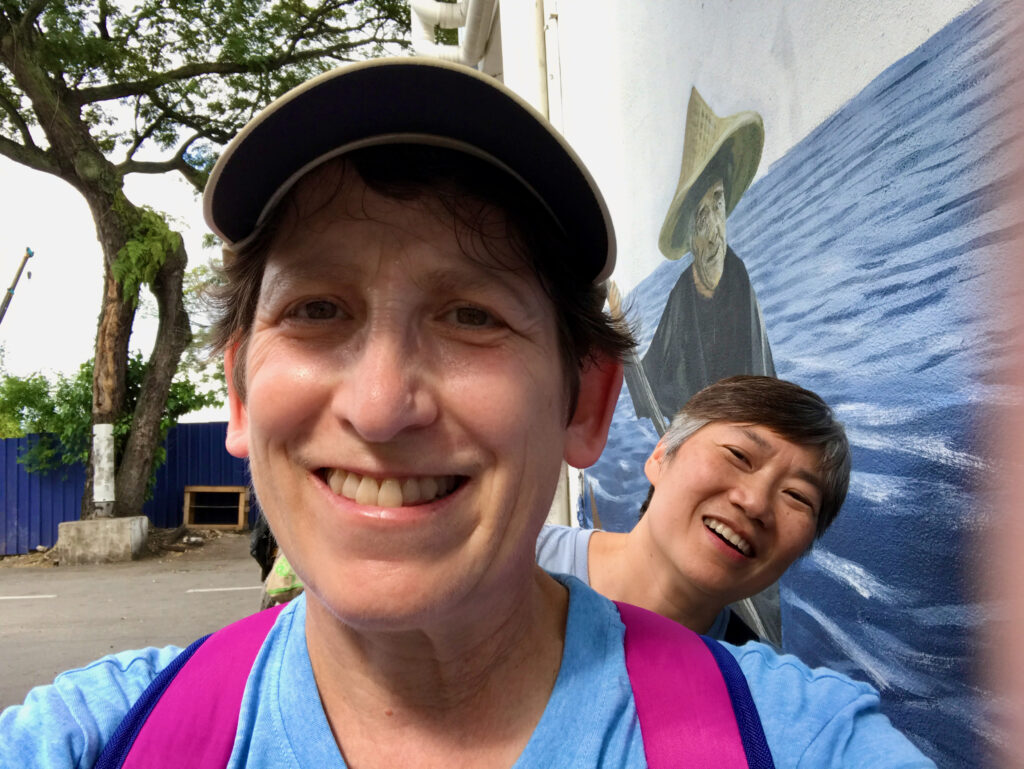Why We Travel to Countries Where Being Queer is Illegal
From Morocco to Malaysia, Sue Davies offers some insight into her travel experiences with her wife to offer some tips and guidance for queer women who want to safely travel to countries where it is illegal to be LGBTQ+.
I love to travel the world with my wife. We are a bi-national, interracial, and LGBTQ+ couple, splitting our time between New Jersey and Singapore. We’ve been traveling the world for the past 25 years, visiting all seven continents and more than 60 countries.
Even though there are currently 67 countries where being LGBTQ+ is illegal, we’ve been to eight of them—Egypt, Morocco, Kenya, Tanzania, Malaysia, Indonesia, Sri Lanka, and Singapore, which recently changed the law. If we included all the countries that have state-sponsored homophobia, this list would be even longer.
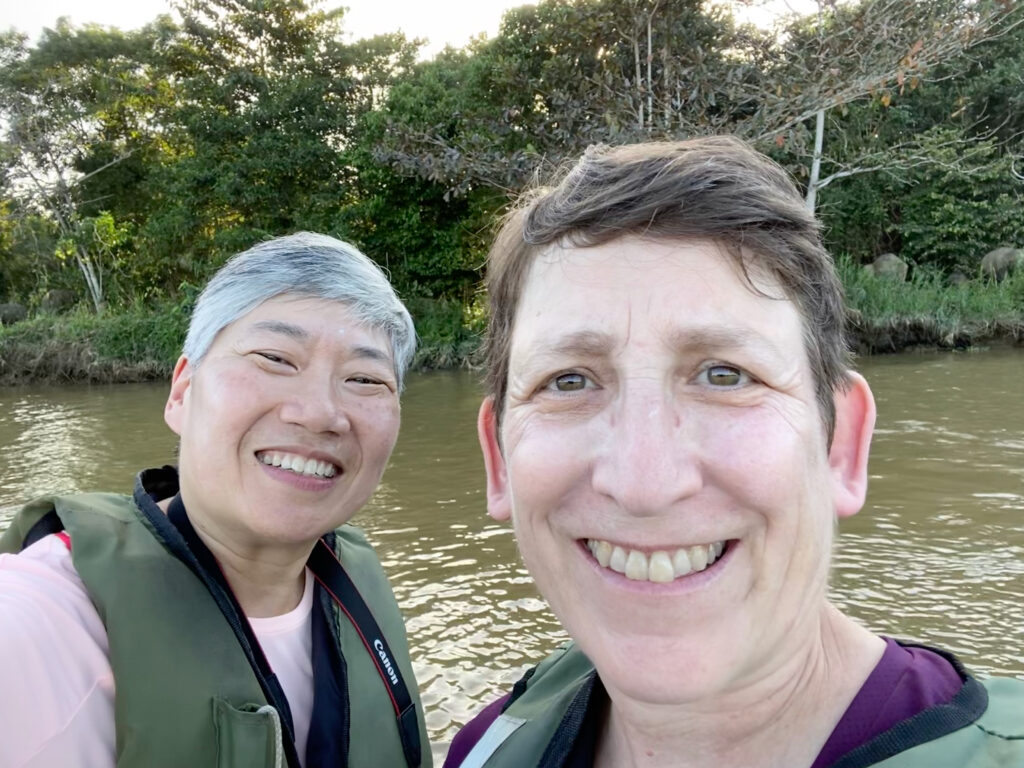
We are often asked why we travel to countries that are hostile to the LGBTQ+ community. We believe that being queer should not stop us from going anywhere in the world—if we can do it safely. At the same time, we’ve declined to visit some countries due to the political situation such as Russia and Iran. For us, it’s a personal decision that is also based on each country we contemplate visiting.
Visiting countries that are intolerant of us can also be a way to support local queer communities. In Nicaragua in 1985, I heard many heartbreaking stories about abuse from local LGBTQ+ activists. Being seen and heard was important to the local queer community. They were heartened when they heard about our experiences in the rural areas, where farmers who had never met queer people were welcoming. The experience impacted all of us.
If you’re contemplating traveling to places where it’s illegal to be LGBTQ+, here are a few examples of places we’ve been with tips about how we stayed safe.
Egypt
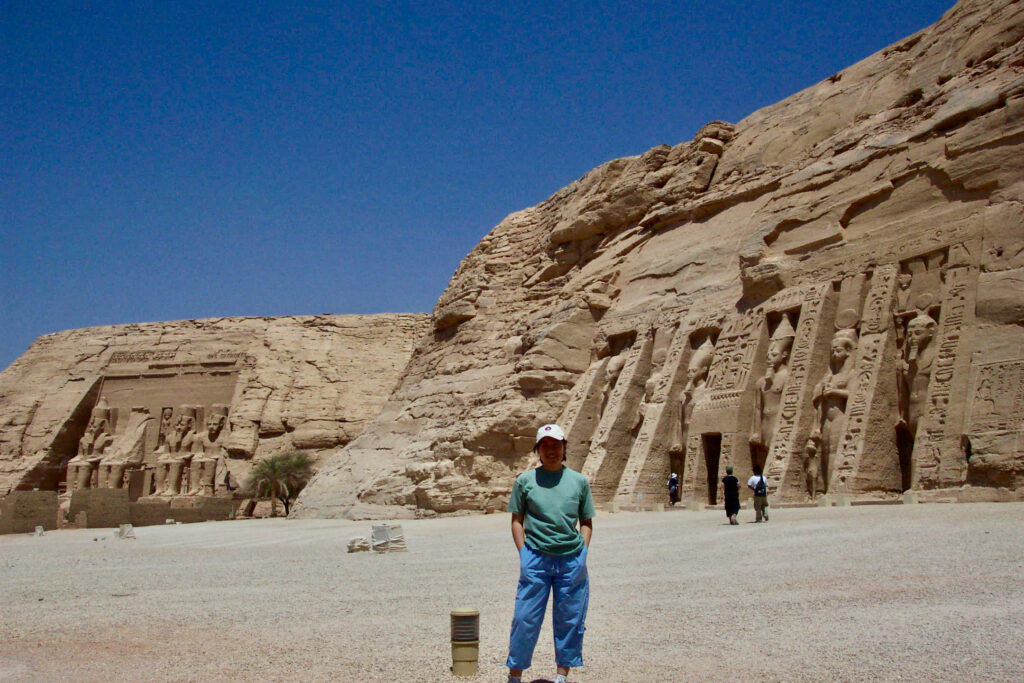
From the pyramids and ancient temples to the souks and the Red Sea, Egypt is an amazing place to visit. It’s also a place where “habitually engaging in debauchery,” the law most often used against queer people, carries a sentence of between three months and three years. Women traveling alone can also face harassment.
For our trip, we used a local Egyptian tour company, so we would have someone in the country if we needed to resolve an issue or problem. The tour owner was wonderful and even invited us to his home for dinner with his family. We didn’t reveal that we were LGBTQ+ and refrained from any public displays of affection. It was a compromise; however, that still led to some uncomfortable situations, including tour guides repeatedly asking us out on dates and several instances of people asking, “Do you really want only one bed?” If we were to do this again, we would book with a gay-friendly tour company as we did in Morocco.
Since the police use chat histories, photographs, and dating apps as evidence in Egypt, it is important to remove explicit content from phones and electronic devices and disconnect from social media accounts. The police also masquerade via fake profiles on Grindr, Tinder, and WhosHere to entrap members of the LGBTQ+ community.
Morocco
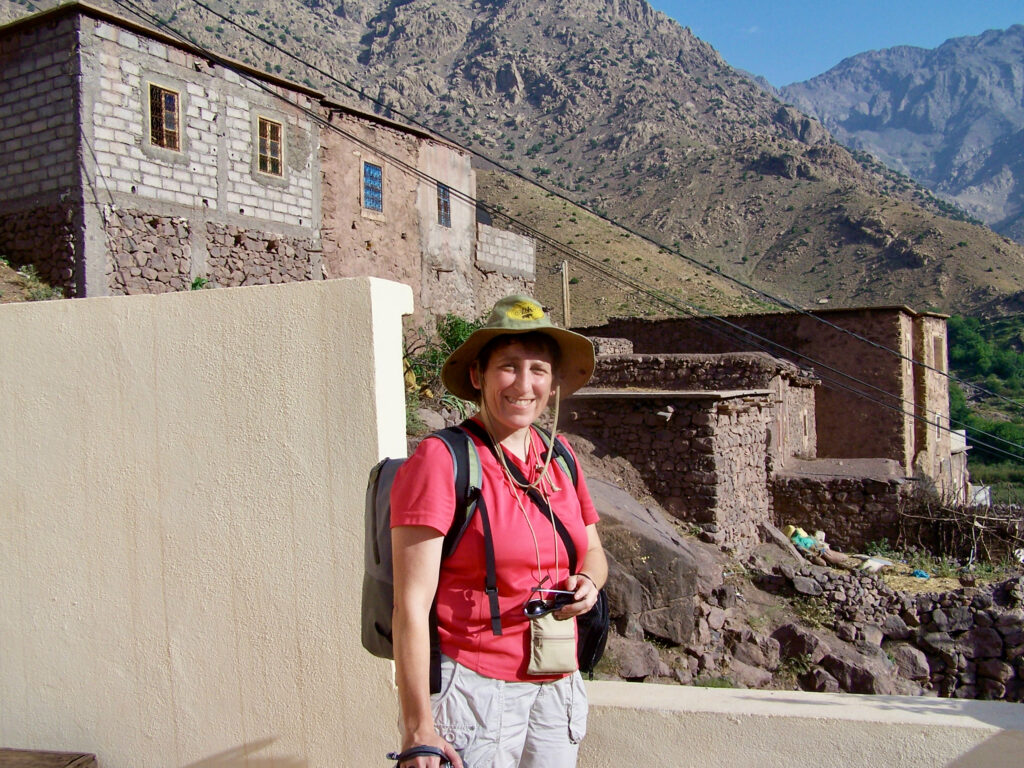
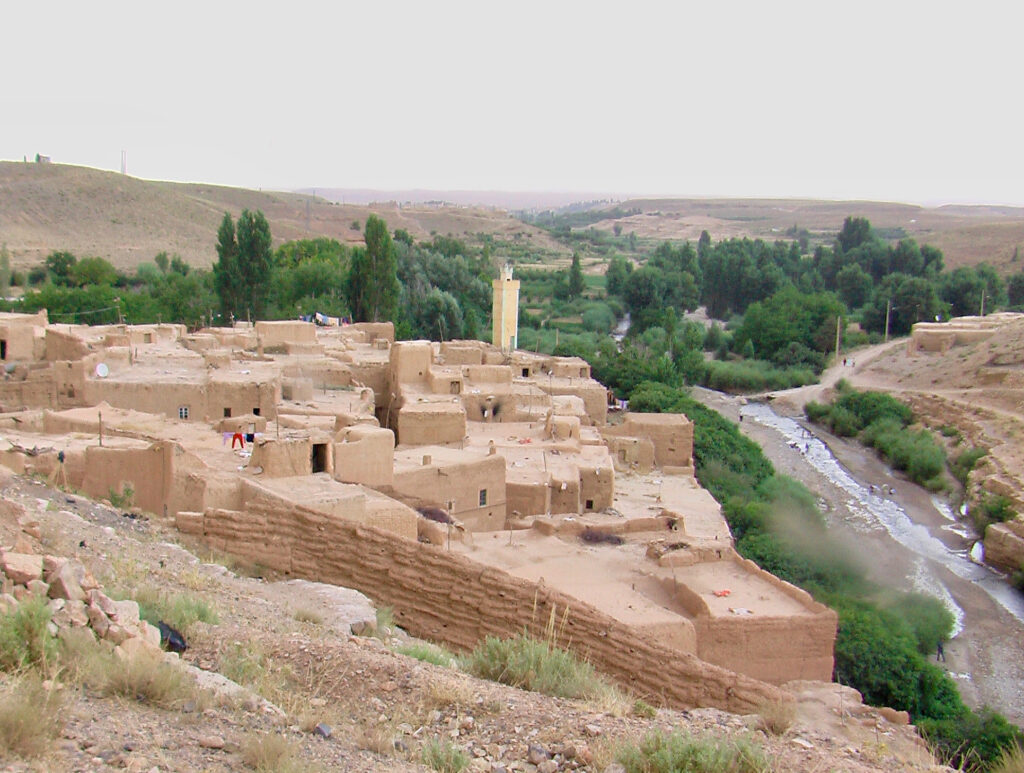
Morocco has ancient medinas, Roman ruins, the Atlas Mountains, and the Sahara desert—all of which we wanted to see. At the same time, “lewd or unnatural acts with an individual of the same sex” are punishable by six months to three years in prison. In addition, the police have used dating apps to identify and “out” queer and transgender people, subjecting them to harassment and discrimination.
After our experience in Egypt, we decided to go to Morocco with a gay-friendly tour group. This worked much better. The tour guide handled room assignments and other necessary activities to keep us safe, including switching room keys so it wouldn’t be obvious that two women were sharing a bed. Even though we were harassed by men on the street when we were on our own in Casablanca and Marrakesh, we felt very safe with our tour group.
Kenya and Tanzania
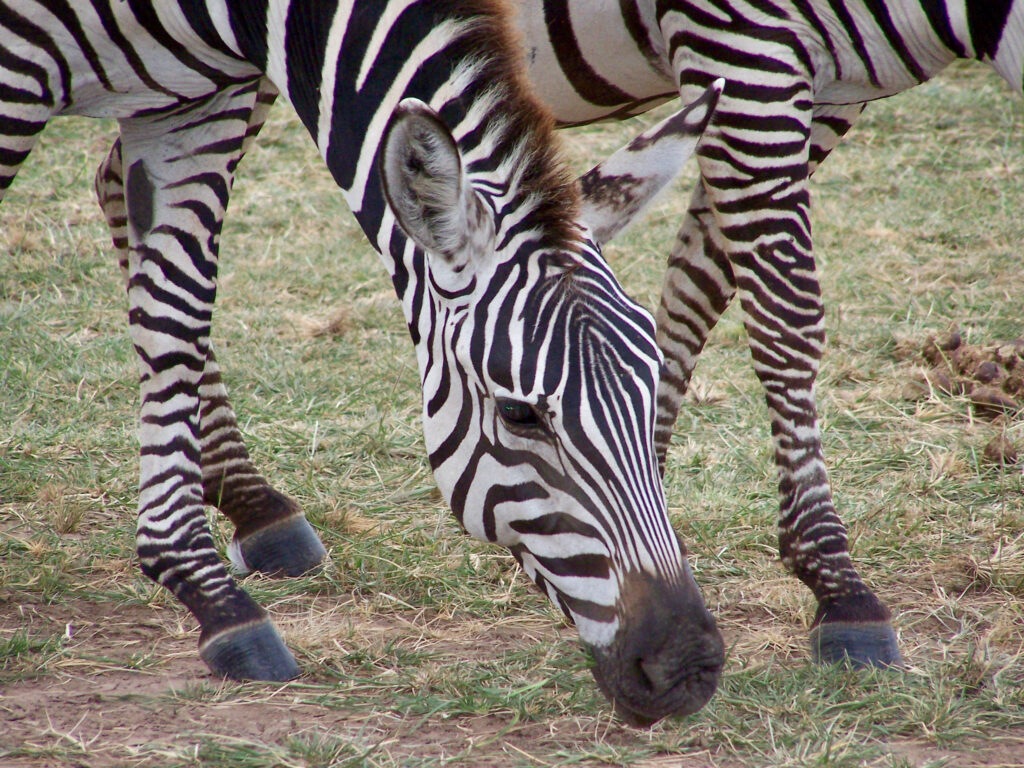
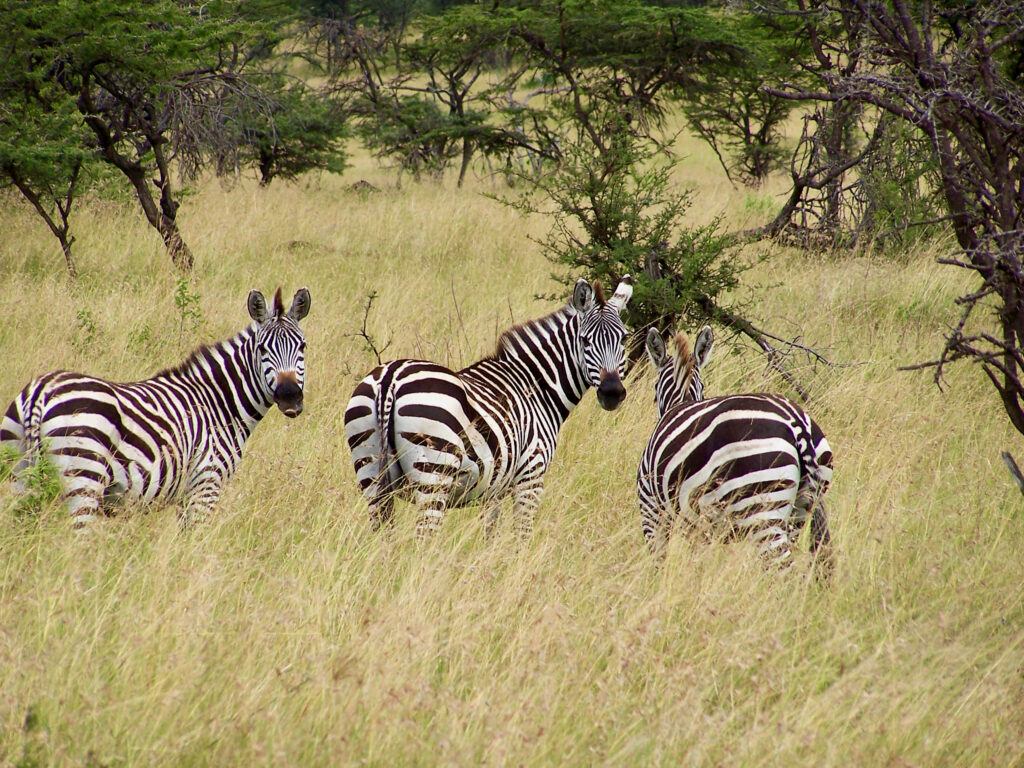
A safari in Kenya and Tanzania was high on our bucket list of trips. We love observing animals in the wild. Both countries have explicit anti-gay laws. In Kenyan sentences can be up to 14 years and 30 years to life in Tanzania.
For this trip, we posted our complete itinerary with friends and family in the United States so that people always knew where we were at all times. Also, we only went out at night by taxi while in Nairobi because we did not feel safe as women alone on the streets at night. We registered with the U.S. State Department’s Smart Traveler Enrollment Program (STEP) because we wanted to be contacted in the event of emergencies and or a natural disaster. In addition, we thought it would be helpful for the U.S. government and local embassy to know that we were in the country if we ran into any issues.
Malaysia
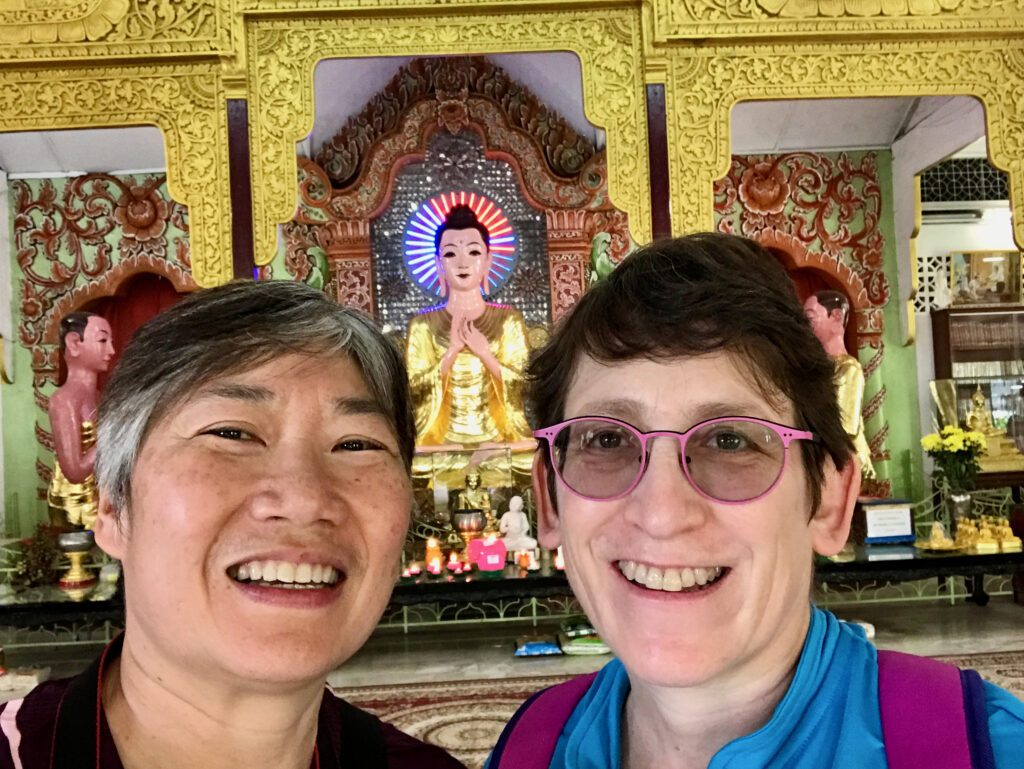
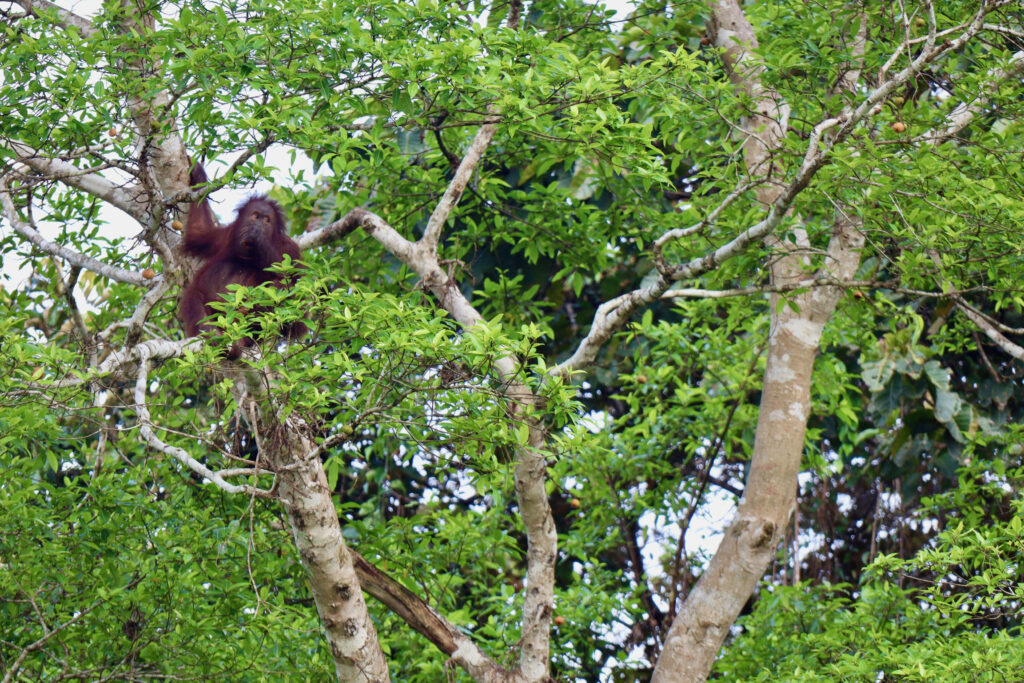
Penang, Malacca, Borneo, and Johor are a few of the places we’ve enjoyed in Malaysia. Some areas have Shariah Law that only applies to Muslims with sentences for queer people up to 20 years in prison, caning (whipping), and fines. Transgendered people can be sent to prison for up to three years. On top of this, the British-era anti-sodomy laws are still on the books today and can be applied to anyone. We have traveled independently and are discretely in Malaysia without any problems.
Malaysia has some gay-friendly cities—Kuala Lumpur, Penang, and Malacca—where there are bars and clubs. Discretion is advised (everywhere, but especially in more rural areas) and PDA (gay and straight) are frowned upon. Pornography is also illegal so be sure to remove any explicit content from electronic devices.
Over the years, we’ve had the privilege of traveling all over the world. We’ve learned our limits and from our mistakes. In addition to learning from other travelers, we do our research first, using resources such as the IGLTA, the Human Rights Campaign Watch, and Vacationer. And we’ve made the decision to be discrete on most of our trips to the places listed above and similar destinations with strict anti-gay laws. Everyone travels differently, but you should ultimately make decisions that allow you to navigate the world safely, compromising your authenticity when you deem it necessary.
Find out more about Sue Davies and Regina Ang on their website Travel for Life Now or follow them on Facebook, X, and Instagram!

